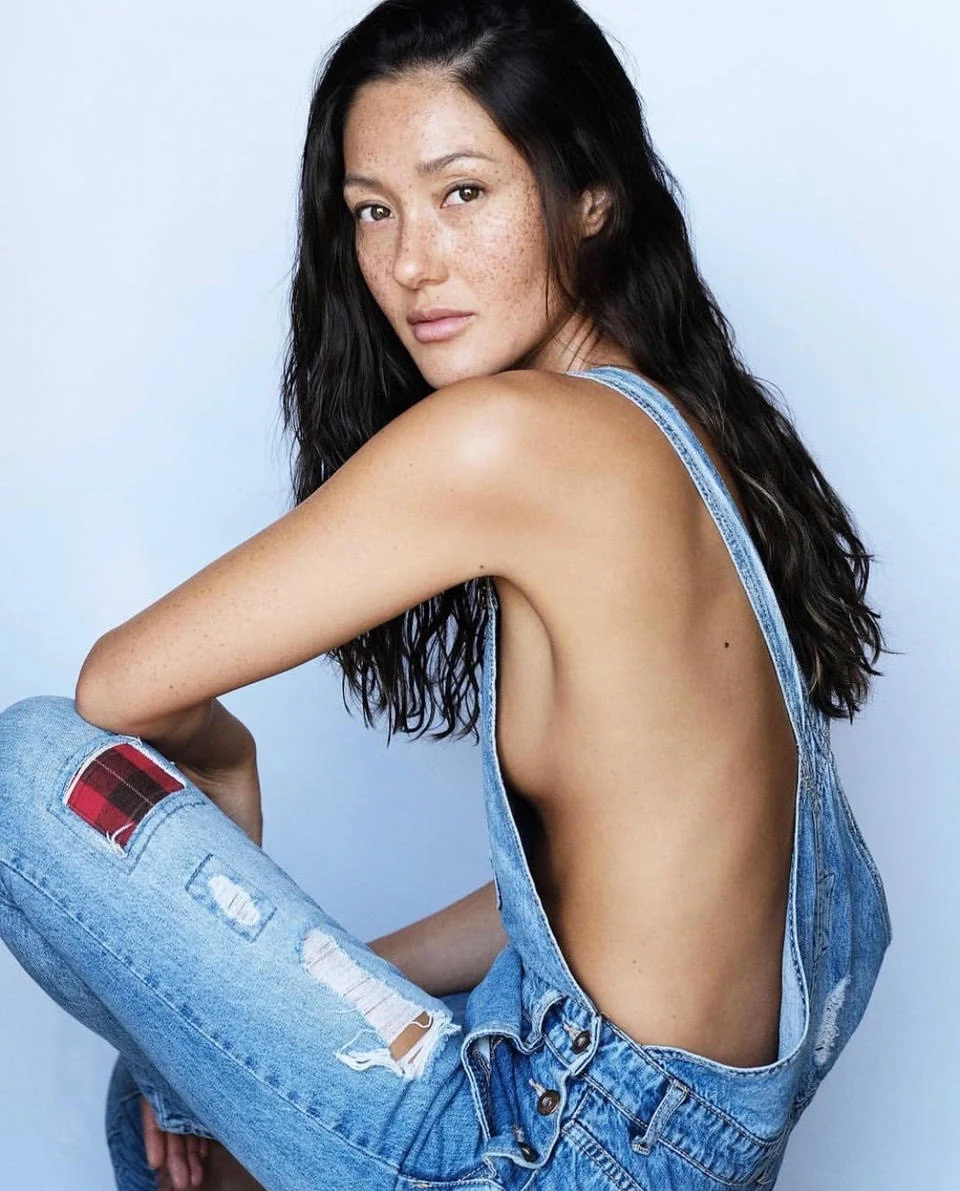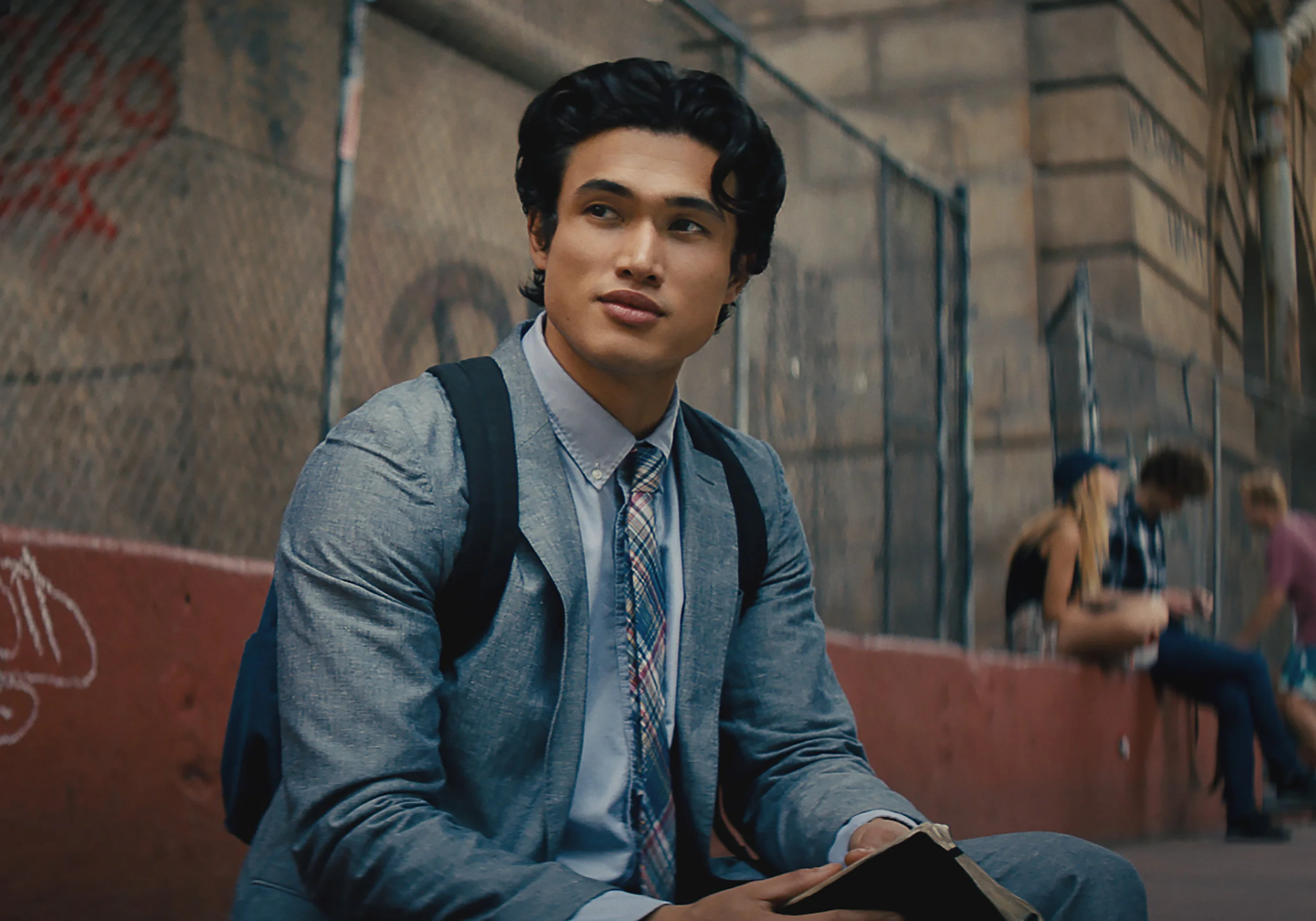Interview: Siren's Actress Aylya Marzolf
By Alex Chester
Siren fans! Hapa Mag has a treat for you! Aylya Marzolf, aka Katrina of Free Form’s fantasy TV series Siren, answered a few of our questions. How often does one get a chance to talk to a mermaid? And a badass one at that!
Interview
Ah, the question all mixed people get, but I have to ask… what are you?
I am half-Japanese, half-Caucasian. My mother is Japanese, and my father is a redneck from Missouri.
Do you identify with the word Hapa? Why or why not?
I 100% am Hapa. I'm from Hawaii where the word originated. I think being Hapa is a big part of what defines me and made me who I am today. Being mixed and having so many different cultural influences is one of the coolest things about being Hapa. Also, no one can really tell what my ethnic background is, and that's kind of fun.
What was it like for you growing up in Indonesia and Hawaii? How does it compare to mainland USA?
Growing up between Hawaii and Indonesia was amazing. I'm a warm weather and sun kind of gal, so the tropics suit me. In Indonesia, I went to an international school so I was always surrounded by a plethora of different cultures and languages. I actually used to be completely fluent in Bahasa Indonesia. Growing up in a place where everyone was from a different background made it so that, in my mind, being different was the cool thing, having friends from all over the world was normal to me. And similarly in Hawaii. Granted most of the population in Hawaii is either Asian, Caucasian, or Pacific Islander, but still, all of those cultures and traditions bleed into each other and meld into this wonderfully rich "local" Hawaiian culture. And whether you were Hapa, haole, or Hawaiian, being from Hawaii made you Kama'aina, and gave us all a sense of togetherness. I moved to Missouri when I was 16 and it was a huge culture shock. I have never witnessed such a clear divide between people based on the color of their skin or ethnic background. Being Hapa did make it hard to fit in at first. I wasn't white enough to sit with the white kids, or Asian enough to sit with the Asian kids. Eventually, the black kids at the school took me in, and that added yet another culture that contributed to raising me. In California, people seem to really embrace Hapas. It's a wonderful thing. And I definitely think that I am able to work so much in the commercial industry because I'm Hapa and I have freckles.
How has being mixed shaped who you are today?
More than anything, being mixed enriched my life by showing me different viewpoints. My parents came from very different families, and they have both passed on traditions, culture, and strengths to me. Also I feel like being mixed, it’s harder to just run with the pack, or too easily fulfill a label, ‘cause you aren't just one thing, when you look around, no one looks just like you. So you have to get a good grip on who you are instead of just following one cultural norm, or the basic traditions of the families before you. You get to create something new and really be you.
How did you get your start in show biz?
Growing up I loved any sort of entertaining. I would sing, dance, put on plays, anything to be performing. I followed that pattern through to graduating high school. Then I moved out to Los Angeles and very haphazardly started to chase my dreams. I was so off base and doing it so wrong for so long haha. But eventually all the classes, great agents, and a thick skin, I just kept going until people started booking me. I'm still nowhere near where I want to be, but I'm so grateful for how far I've come.
What are your thoughts of representation vs. presentation for the mixed-raced actor?
I will say that it has been hard being a mixed-Asian actor in this industry. A lot of times I was told that I wasn't Asian enough, or I would audition for Hispanic or Native American because casting didn't really know what to do with me. I do think that slowly things are changing. I'm a big fan of these shows that are now seeing all ethnicities and then casting the best actor for the job. I feel like there honestly isn't enough representation or mixed-Asian, or even just Asian actors. Until recently most of the Asian roles seemed very presentational, very stereotypical, and all for the sake of being able to call the show "diverse." I've never watched a movie or a TV show that represented my mixed culture, but I do cheer any time I see an Asian actor working and killing it.
What’s it like playing a mermaid on Siren? Can you talk about the audition process? Do you think there is any correlation between Asian Americans being cast as roles that are “otherworldly” or “alien” due to always being considered foreigners in this country?
Playing Katrina on Siren was a dream come true! I mean how many little girls play mermaids at the pool and brush their hair with a fork, and then grow up to actually be one. And a badass one at that. It’s funny, I actually auditioned at the beginning of season 1 to play Donna, Ryn's sister. I got put on hold for it and got so excited, then I was released. They had given it to someone else. I was so sad and heartbroken. But then a few months later my agent called me and said they added another mermaid to the show and wanted to offer me the role!! Things really do happen for a reason, because Katrina fits me like a glove. And season 2 we were really able to go full tilt with creating mermaid culture and sign etc. It’s an actor’s dream to be able to collaborate like that. And doing the underwater stuff is a once in a lifetime thing I feel like. I felt so at home, and I miss the deep tank days so much. First, I'd like to put it out there that I desperately want to play an alien. So if being Hapa helps I'm excited about it. I do think that when you are casting a look to play something otherworldly, you don't want a look that you've seen a thousand times. And mixing different Asians with any other ethnicity tends to give you a striking and very unique look. I think it has more to do with their interesting looks versus the perception of us being foreigners in this country. But it could be. My brain just doesn't work like that.
What’s the best thing about being mixed?
The best thing about being mixed is my family. Hands down the best thing. I have a 5-year-old son, and it's amazing for me to see him growing up in a home where we take off our shoes at the door, burn incense for my Ojiichan, eat Indonesian food, sing French nursery rhymes, dance hula, and occasionally milk cows.
Any words of advice for an aspiring Hapa actor?
Just keep going. And own who you are. I tried covering my freckles so I would look more Asian, or changing my makeup to look more Caucasian. But at the end of the day, the roles that are for you will come to you when you embrace who you are wholly. It takes time, so much time, but if your heart can think of no other career than acting, it will all be worth it.
End of Interview
Follow Aylya on in Instagram @freshfreckles and Twitter @_freshfreckles.
Alex Chester is the creator and producer of the theatre company WeSoHapa — a theatre based on diversity and inclusion. She is a New York City based columnist for On Stage Blog and contributing writer for ManhattanDigest.com and HuffPo. She also hosts a podcast with fellow writer Melissa Slaughter, We're Not All Ninjas. Follow her on Twitter/Instagram @AlexFChester if you like food and cats.







By Alex Chester
Attention, Siren fans! Alex Chester interviews actor Aylya Marzolf, discussing what it’s like to be a Hapa actress in Hollywood and of course Siren on Freeform.